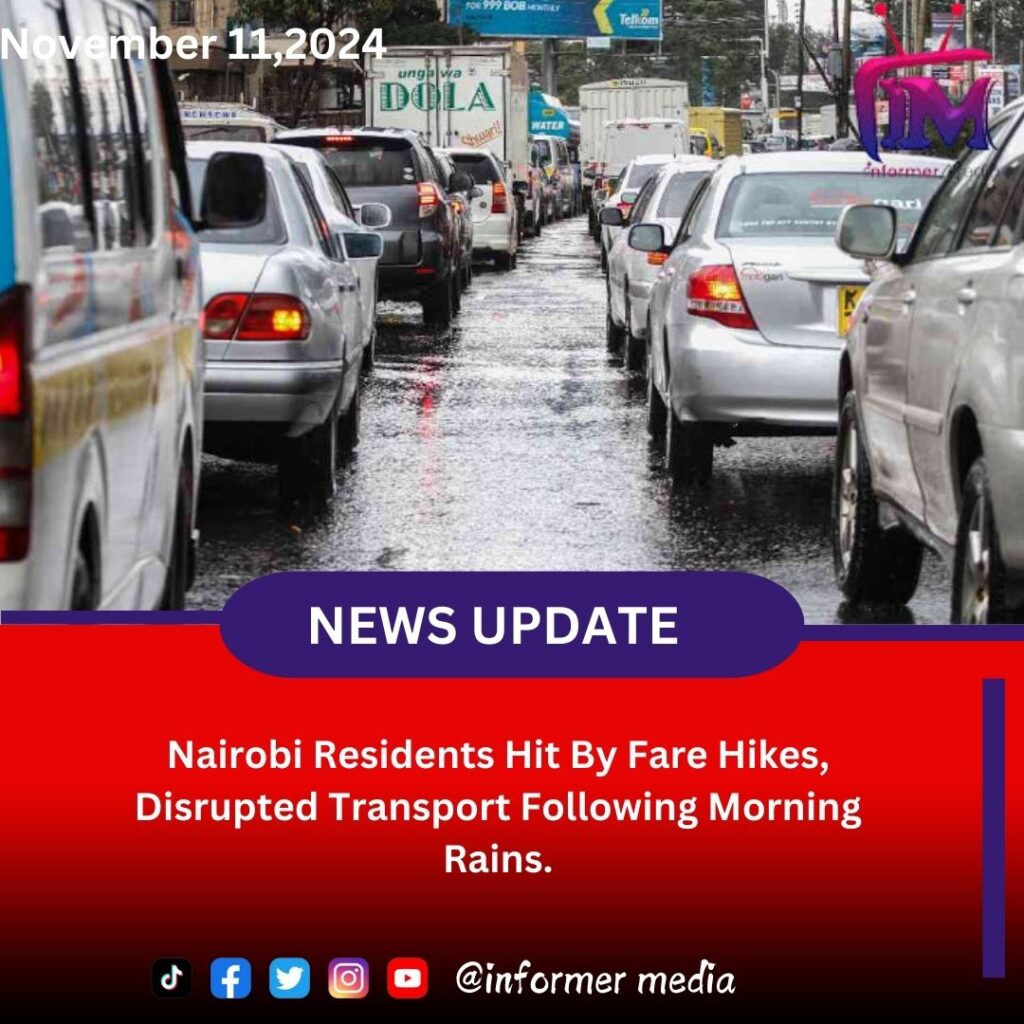Residents of Nairobi woke up to heavy rains Monday morning, with significant disruptions to transport along major roads. Areas such as Kibera, Kawangware, and Mukuru Kwa Reuben were among the worst affected by the downpour, which caused traffic gridlocks and flooded streets.

The heavy rains, which were predicted by the Kenya Meteorological Department, have led to a sharp increase in transport fares, with matatu operators taking advantage of the situation to hike prices.
Kibera resident Grace Wambui expressed frustration over the sudden fare hikes. “I had to pay double the usual fare just to get to work today. This is unfair, especially when you’re already struggling with the chaos caused by the rain,” she said.
In Kawangware, residents reported long waiting times at bus stops as fewer vehicles were able to navigate the flooded streets.
Moses Otieno, a local shopkeeper, said, “The roads are completely blocked. I’ve been waiting for more than an hour for a matatu to take me to town. It’s frustrating because we also have to pay more.
The matatu operators know they can get away with it because people need to get to work.”The Kenya Meteorological Department had earlier this week warned of heavy rains in Nairobi, as well as in parts of Western Kenya, the Lake Victoria Basin, Rift Valley, Coast, and northeastern regions.
The matatu fare hikes are part of a pattern that has been observed during periods of inclement weather. Matatu operators, especially in busy urban areas like Nairobi, frequently raise their fares during heavy rains, citing the increased operational costs and delays caused by the weather.
Paul Njoroge, a bodaboda rider in Eastlands, also admitted to raising fares to cope with the increased demand for transport.“When it rains, people are desperate to get home, and the demand for transport goes up. It’s not just the matatus, even us bodaboda riders have to increase the fare. It’s business, but I understand that it’s hard for those who don’t have much money,” he said.



















